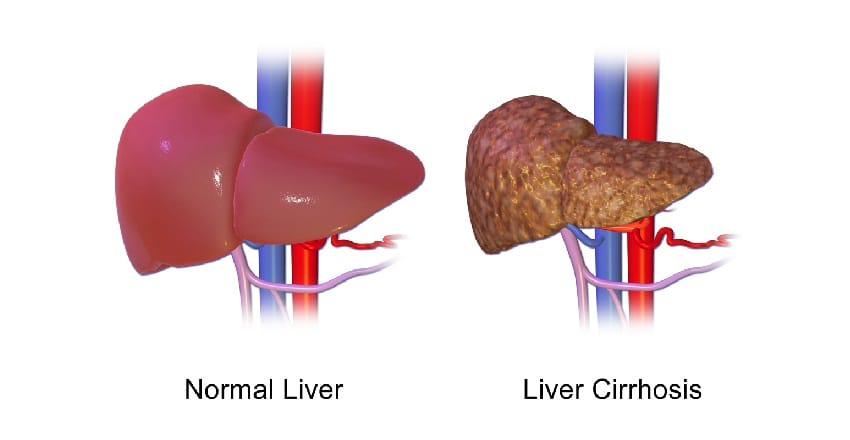Ayurveda – Fatty Liver Treatment: Liver health is crucial for overall well-being. In Ayurveda, the liver, known as “Yakrut,” is closely linked to Pitta dosha and plays a vital role in numerous bodily functions. A healthy liver is essential for vitality and has the remarkable ability to regenerate. However, various factors can impair its function, leading to conditions like fatty liver and, in more severe cases, liver cirrhosis. This article explores the Ayurvedic approach to managing these conditions, focusing on natural treatments, herbal remedies, dietary adjustments, and lifestyle changes.
The Liver’s Vital Functions
The liver performs hundreds of essential functions, including:
- Digestion: Produces bile for fat digestion and nutrient absorption.
- Detoxification: Filters toxins, including drugs and alcohol, from the blood.
- Metabolism: Regulates blood sugar, converts glucose to glycogen, and processes proteins and fats.
- Blood Clotting: Produces clotting factors.
- Storage: Stores vitamins (A, D, E, K, B12) and minerals (iron, copper).
- Immunity: Produces immune factors and removes bacteria.
- Other functions: Haemoglobin processing, ammonia conversion, bilirubin clearance.
Understanding Liver Disorders: Ayurveda Fatty Liver Treatment and Liver Cirrhosis
When imbalances occur, such as toxin buildup or dosha imbalances (especially Pitta and Kapha), the liver can become compromised, leading to conditions like fatty liver (YakritRoga) and, if left unchecked, liver cirrhosis.
Causes of Fatty Liver and Liver Cirrhosis
Several factors contribute to liver disorders:
- Unhealthy Diet: Excessive consumption of oily, fried, processed foods, and sugar burdens the liver.
- Sedentary Lifestyle: Lack of physical activity slows metabolism and promotes fat accumulation.
- Excessive Alcohol Consumption: Alcohol severely damages the liver and impairs its function.
- Dosha Imbalances: Imbalances in Kapha (excess fat storage) and Pitta (impaired metabolism) can contribute to liver issues.
- Mental Stress: Chronic stress affects digestion and metabolism, impacting liver function.
- Poor Digestion (Agnimandya): Weak digestive fire (Agni) leads to toxin (Ama) accumulation.
- Overuse of Vegetable Oils: Especially those high in omega-6 fatty acids, can promote inflammation.
Ayurveda Fatty Liver Treatment and Liver Diseases
Ayurveda offers a holistic approach to liver health, focusing on cleansing, balancing doshas, and supporting digestion.
1. Detoxification (Panchakarma):
- Virechana (Purgation Therapy): Eliminates toxins and balances Pitta and Kapha.
- Basti (Herbal Enemas): Balances Vata, regulates bowel movements, and aids toxin removal.
- Liver Basti: Targets liver health directly with specific herbs and oils.
2. Herbs for Liver Health:
- Kutki (Picrorhizakurroa): Powerful liver tonic, enhances detoxification, improves bile flow, reduces fatty deposits.
- Guduchi (Tinosporacordifolia): Balances doshas, detoxifies, boosts immunity, rejuvenates liver cells.
- Bhumyamalaki (Phyllanthus niruri): Protects liver cells, detoxifies, treats jaundice and hepatitis.
- Turmeric (Haridra): Anti-inflammatory, antioxidant, reduces liver fat, protects against oxidative stress.
- Amla (Indian Gooseberry): Rich in vitamin C and antioxidants, rejuvenates the liver, improves digestion.
3. Dietary Recommendations:
- Light, Simple Diet: Emphasize fresh fruits, vegetables, whole grains, and avoid fried, oily, and heavy foods.
- Spices: Include ginger, black pepper, and turmeric for their digestive and detoxifying properties.
- Dandelion Root Tea: Supports liver cleansing and bile production.
- Avoid: Excess sugar, alcohol, and processed foods.
4. Lifestyle Modifications:
- Regular Exercise: Yoga, brisk walking, and other physical activities improve metabolism and detoxification.
- Mindfulness Practices: Meditation and pranayama reduce stress and balance doshas.
- Abhyanga (Oil Massage): Stimulates circulation, promotes relaxation, and aids toxin removal.
5. Yoga for Liver Health:
- Asanas:ArdhaMatsyendrasana (Half Spinal Twist) and Bhujangasana (Cobra Pose) stimulate the liver and improve digestion.
- Pranayama:Kapalbhati (Skull Shining Breath) and AnulomVilom (Alternate Nostril Breathing) enhance detoxification and balance Prana.
Conclusion
Ayurveda Fatty Liver Treatment offers a comprehensive approach to supporting liver health and managing conditions like fatty liver and liver cirrhosis. By incorporating these Ayurvedic principles—including herbal remedies, dietary adjustments, yoga, and lifestyle changes—individuals can promote detoxification, restore balance, and enhance liver function. It is important to emphasize that while Ayurveda can be a valuable complementary approach, it should not replace conventional medical treatment for liver cirrhosis or other serious liver conditions. Always consult with a qualified medical professional for diagnosis and treatment.
Want to know more, contact us now!



